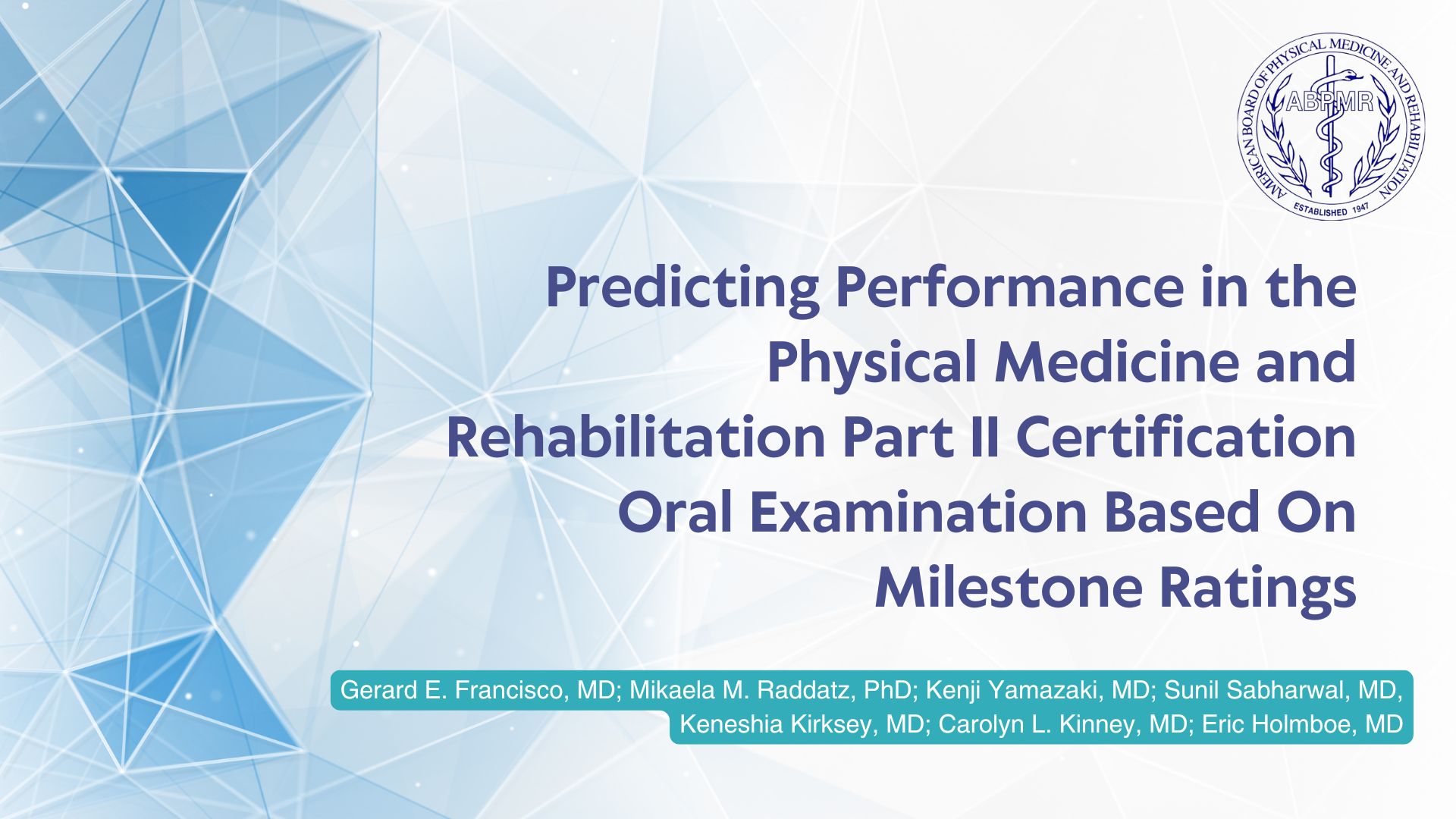Initial Certification Research
Association of Internship With Performance on American Board of Physical Medicine and Rehabilitation Certification Examinations

The goal of this study was to determine if there is a relationship between type of internship experience and performance on ABPMR board examinations. A retrospective analysis of deidentified reports from program directors was conducted for physicians who completed a PM&R residency and took the Part I Examination between 2008 and 2022.
The study found a relationship between the type and content of internship and board examination pass rates and scores. Residents who graduate from categorical residencies have higher pass rates on the Part I ABPMR Examination than those who complete a transitional internship and higher scaled scores on Part II than those who graduate from advanced programs (both transitional and nontransitional years). When comparing advanced program resident subsets with each other, transitional residents demonstrated higher pass rates and scaled scores on Part II than nontransitional residents but no differences on Part I.
There was a relationship between the number of months assigned to certain specialty rotations in the training completed before beginning PM&R residency and a candidate’s initial board certification pass rate and scores. In general, three months or more assigned to internal medicine rotations predicted higher scores on board examinations than two months or less, but there was not an incremental increase in scaled scores with additional months of internal medicine beyond five. Most categorical and nontransitional internships inherently offer more months on internal medicine, and this may be a significant driver of the differences in board examination outcomes between candidates with transitional versus nontransitional internship year experiences. Physicians who completed six or more months in internal medicine training had higher Part I and Part II Examination scaled scores and pass rates than physicians who completed six or more months in surgery training.
Although significant differences in outcomes were identified, the differences were relatively small and may support flexibility of choice for the PGY-1 experience. This data may inform future ACGME PGY-1 requirements, program director advice for residents, and medical student choices related to internship year training.
Read the abstract or download the full article here.
Sherilyn W. Driscoll, MD, David W. Pruitt, MD, Sunil Sabharwal, MD, Mikaela M. Raddatz, MD, Carolyn L. Kinney, MD PMID: 39255448 DOI: 10.1097/PHM.0000000000002641



